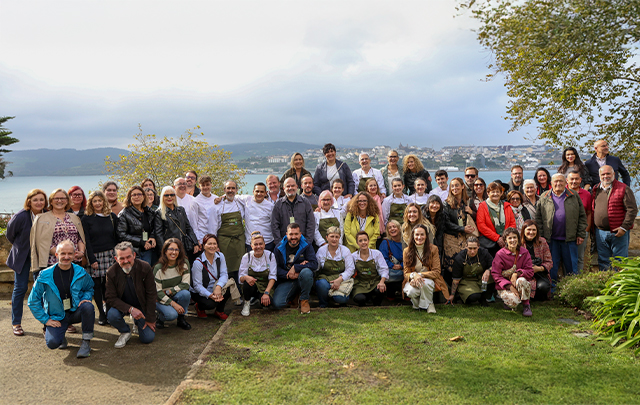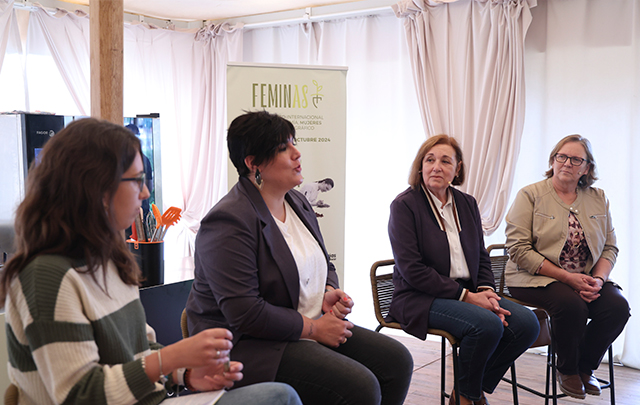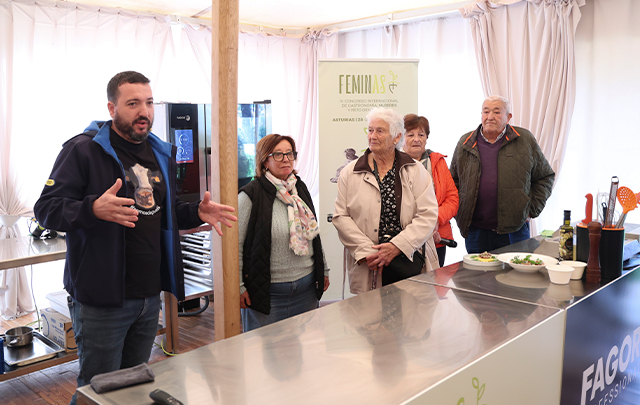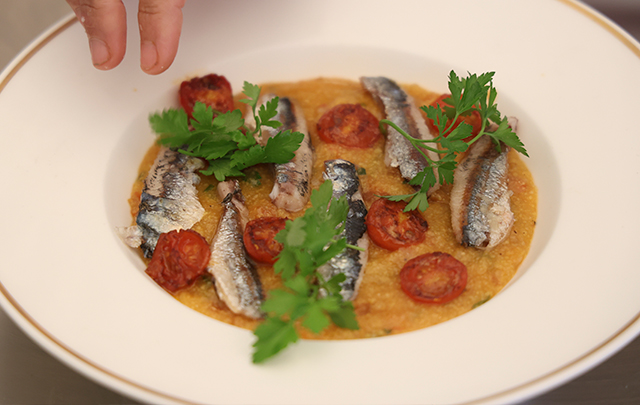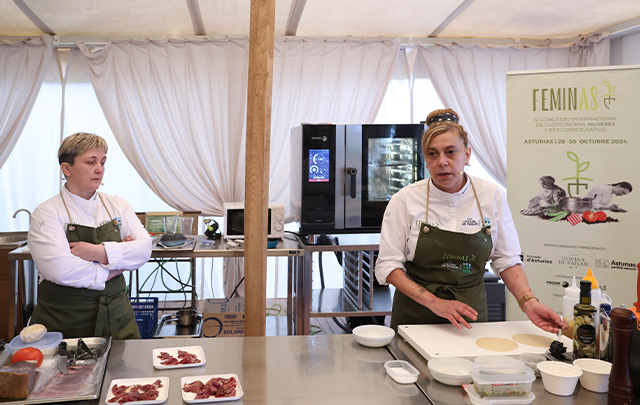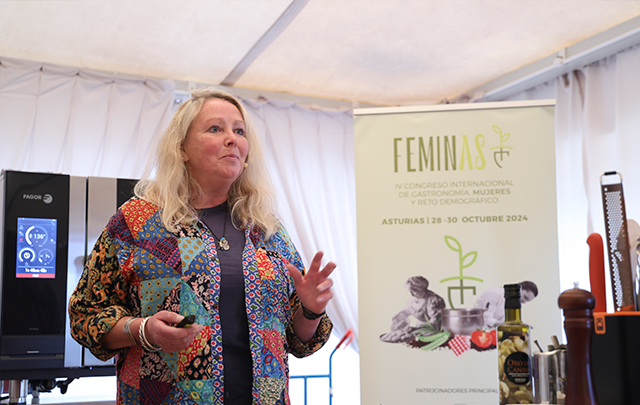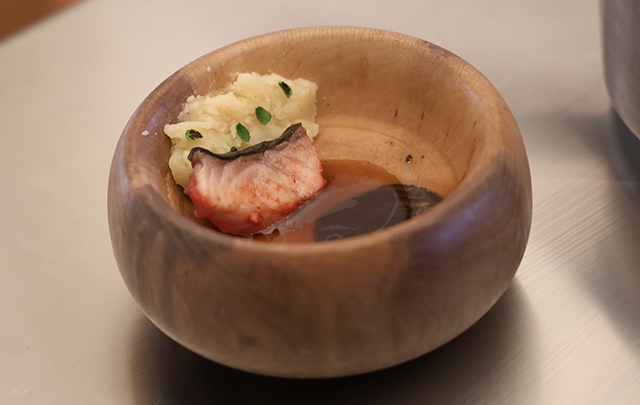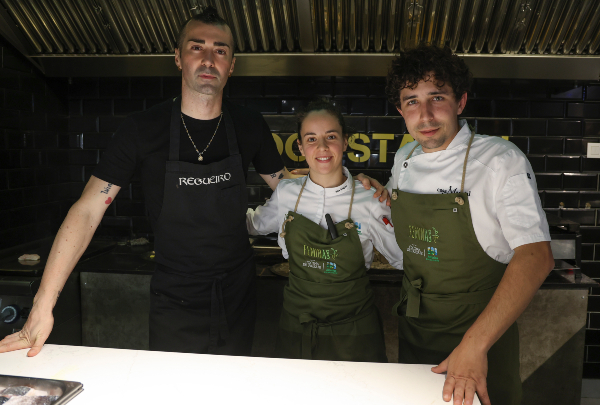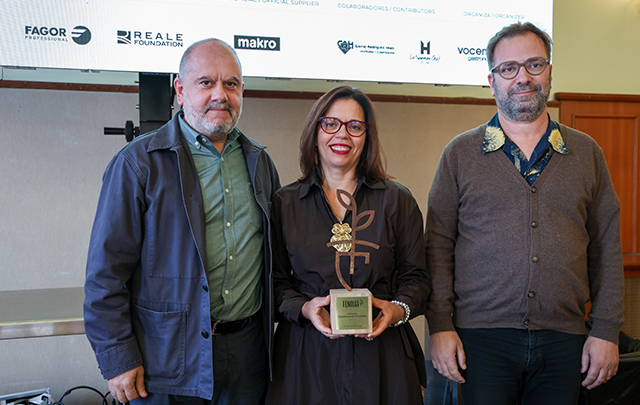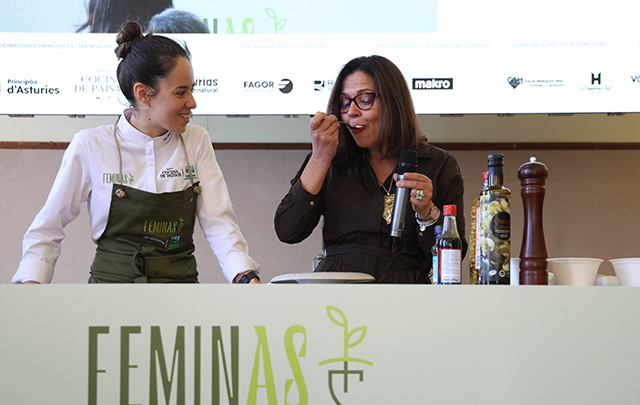News
At FéminAs, chefs defend women as 'the foundation and support of gastronomy'
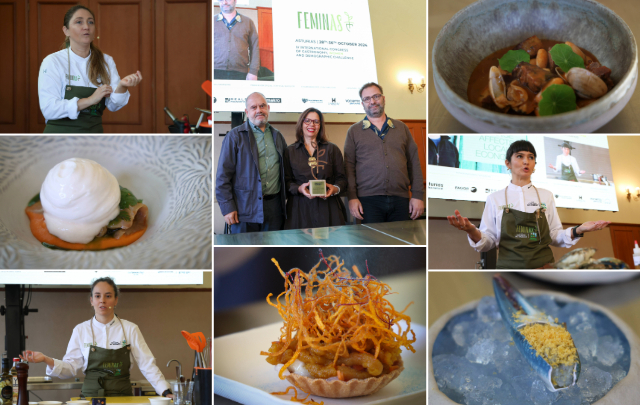
The Círculo Liceo Casino in Luarca was the venue for the second day of FéminAs, the International Conference on Gastronomy, Women and the Demographic Challenge. The setting is particularly significant for a day dedicated to the need to make visible the contribution of women as producers, custodians and transmitters of cuisine and food production, since in the 19th century access was reserved exclusively for men.
The aim of the documentary series 'A cocinha portuguesa a gostar dela própria' ('To enjoy our Portuguese cuisine'), produced and shot by the filmmaker and music ethnographer Tiago Pereira, is precisely to record, save from oblivion and transmit the contribution of women to traditional Portuguese cuisine. The series was awarded the Guardians of Tradition prize by the FéminAs Congress.
Pereira, known for his documentaries on Portuguese popular music, explained that the award-winning project came about by chance when, while filming the series on music, a woman from a village took him home and served him an old pork stew that he did not know. He decided that this heritage should be saved from oblivion. Benjamín Lana, director of the congress, thanked her for her efforts, which resulted in a beautiful collection of clips that can be seen on Youtube.
The day of this international meeting of women in gastronomy, sponsored by Asturias, Cocina de Paisaje and Asturias, Paraíso Natural, began with Lucía Freitas, chef at A Tafona (1*Michelin, Santiago de Compostela). An important voice in defending the role of women in cooking and production, Freitas has supported FéminAs with her participation in previous editions. On this occasion, she gave a lecture entitled 'Essence, cooking memory'.
Freitas explained that in her relationship with the small producers she works with, it is not only important to value and honour their product, but above all to give them a voice. Gastronomy is an iceberg of which the chefs are the tip and the women are the base and those who really support it,' she said. Her Asturian grandmother Manuela, the producers of the Amas da Terra association (shellfish gatherers, cattle breeders, farmers, wine growers...) and the great Galician poet Rosalía de Castro served as references.
My Asturian grandmother Manuela's house always smelled of stews," she recalled, adding: "Unfortunately, I was not able to absorb all her knowledge, and this is one of the things that drives me to work so that this heritage is not lost.
No less moving was his evocation of Rosalía de Castro. In one of her poems she speaks of 'caldo de gloria', a broth from times of extreme poverty that shows how women used the poorest ingredients to make comforting food," she explained. This is the broth that A Tafona's customers are welcomed with today. It is a way of telling them that they have come home.
The same ingenuity that allowed Galician women to escape poverty with a delicious broth now fuels the cuisine of Chiara Pavan, chef at Venissa (Venice, *Michelin and *Michelin Green), who is committed to what she calls 'environmental cuisine', based on proximity, the regenerative cultivation of her large garden, the use of conservation techniques and the use of invasive species in her dishes. As well as offering the feeling of our territory, we want to take care of our ecosystem,' she explains.
For example, one of the few animal proteins in Chiara's cuisine, which is more vegetarian, is the blue crab (Callinectes sapidus), a species that originated in the Americas and is also causing enormous problems on the Spanish coast. There is also room for the Rapana venosa, an Asian clam; the Anadara inaequivalvis, a striated clam that has been displacing local species in recent years; and even the Rhizostoma pulmo, a native jellyfish that has proliferated in recent years. They do a lot of cooking in Asia," he said, adding that the restaurant's customers are given an informative list of all the invasive species on the menu.
Memory and the evocative power of flavours took over the stage again with the presentation of Rita Magro, the young and brilliant chef of the Blind Restaurant (Porto). Winner of the Michelin Guide's 2024 Young Chef Award, Magro explained the importance of memory in Blind's cuisine.
Blind's gastronomic proposal is inspired by the novel 'Essay on Blindness' by Nobel Prize winner José Saramago. In a proposal that invites us to be guided by our senses, it is essential to play with the memory and evocative power of food,' he said.
The day ended with a tasting of preserves and a discussion between María Busta (Conservas Casa Eutimio, in Lastres), Ángela Donato of Conservas el Viejo Pescador (Tapia de Casariego) and Ana Labad Cruz, representing Anchoas Hazas (Lastres). The activity took place in a privileged setting, the beautiful coastal town of Puerto de Vega.
The itinerant nature of the FéminAs Congress allows speakers and journalists to discover the gastronomic gems of Western Asturias, not only the products but also the restaurants. Chefs such as Pedro Martino (Restaurante Pedro Martino, Caces), Elio Ferpel (Ferpel Gastronómico*, Ortiguera) and Diego Fernández (Regueiro, Villaverde), as well as restaurants such as Mesón Centro, La Marina and Sidrería Jorge in Puerto de Vega, have brought their larder and their heritage.


